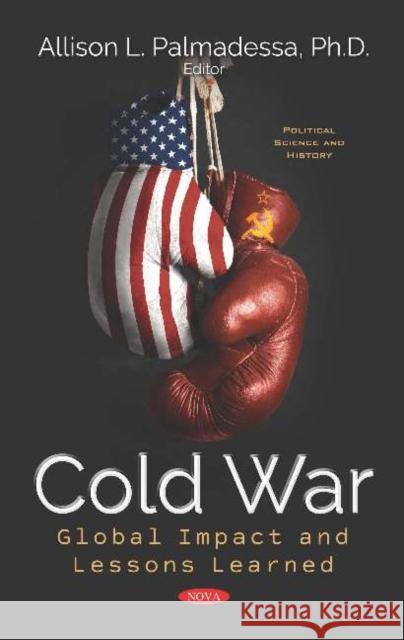Cold War: Global Impact and Lessons Learned » książka
Cold War: Global Impact and Lessons Learned
ISBN-13: 9781536156676 / Angielski
This interdisciplinary text takes into account the impact of the Cold War on various locales, groups, societies, organizations, and technology. Included in this work are chapters on education, political groups, cultural challenges and rivalries, nuclear technology and weaponry, the impact of nuclear exposure, and the new global order in a post-nuclear age. Edited by an historian, each chapter is written from multiple disciplinary perspectives a a political science, history, social science, science, and medicine a a making this work exceptionally unique with broad sweeping conceptual frameworks, methods, and points of analysis, all the while focused upon a four- decade era of fear. The work of Stivachtis and Manning offer an engaging look into the organization of the international community, world affairs, and inter-cultural challenges during the Cold War to understand the impact on global society through the lens of the English School of International Relations. Cimbala's chapter delves into the challenges to controlling and understanding nuclear warfare throughout the Cold War and how the knowledge of control or preventing catastrophic nuclear war in the historic period is significantly different from the current nuclear age, from the perspectives of what nations have weapons, of what magnitude, and the potential for warfare. The impact of nuclear exposure well after the Cold War is examined in Osono's work, which analyzes the physiological and neurological impact of nuclear waste on workers in China who unknowingly unearthed barrels of nuclear waste. Nekola offers readers a view into the role of the exiled Czech political parties that operated in outside of the regulations of the Iron Curtain, after the 1948 Communist Coup, maintaining party publications and organization throughout the 1950s. The work of Bar-Noi analyzes the relationship between the Israeli and Soviet governments as the nation of Israel was founded and ultimately placed in the political cross-hairs of world leaders from 1945 to 1967. Palmadessa's works on U.S. education a a k-12 compulsory and higher education a a considers the ways in which education responded to the call for patriotic support of the U.S. in opposition to the communist regime in Russia and the understanding of the global role education was to play. The Cold War shook the world, its institutions, cultural groups, and scientific communities to their core. The Cold War: Global Impacts and Lessons Learned offers readers insight into the immediate challenges, the continued obstacles, and the knowledge gained from this tumultuous period riddled with fear that dominates the narrative of 20th century world history.











